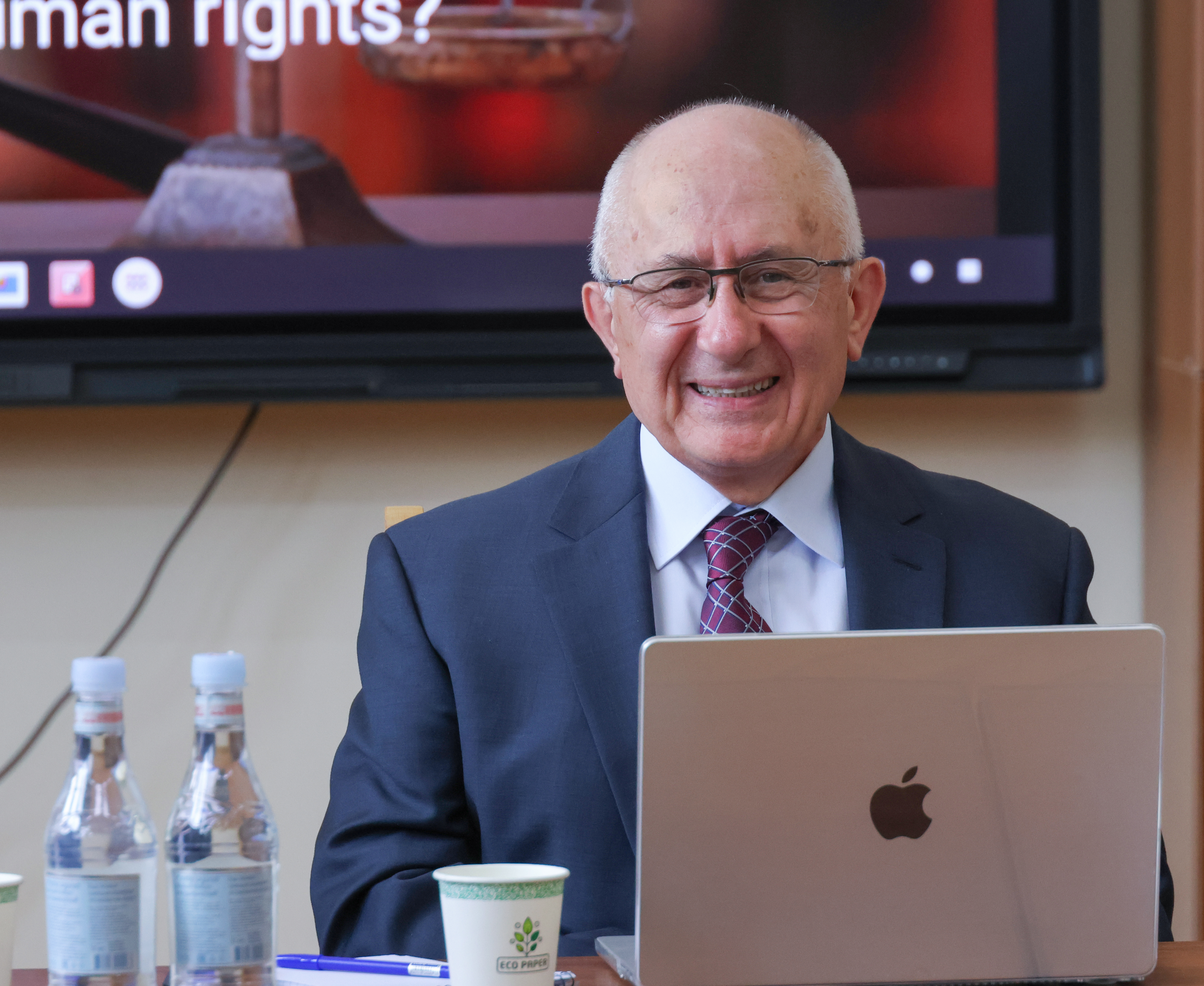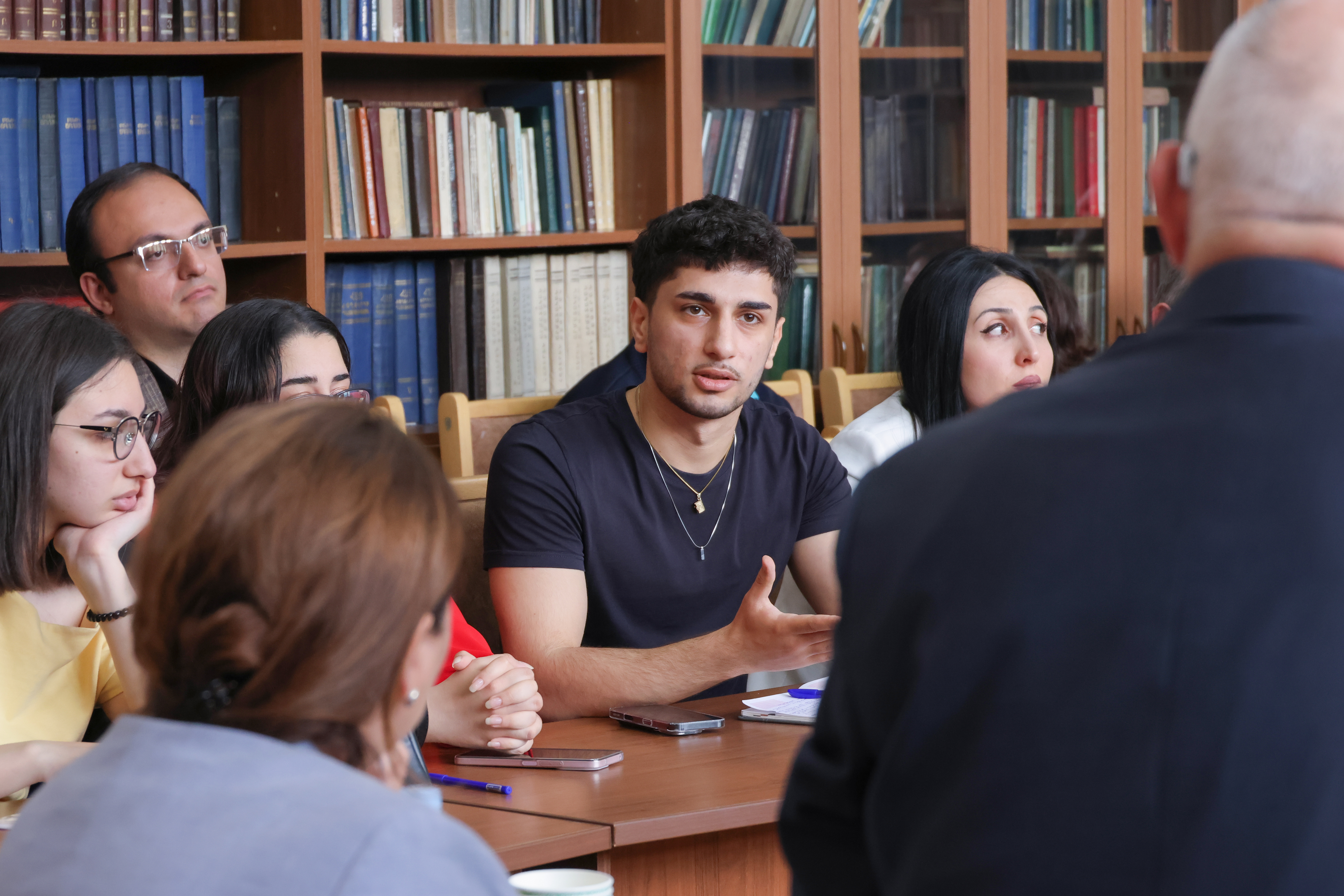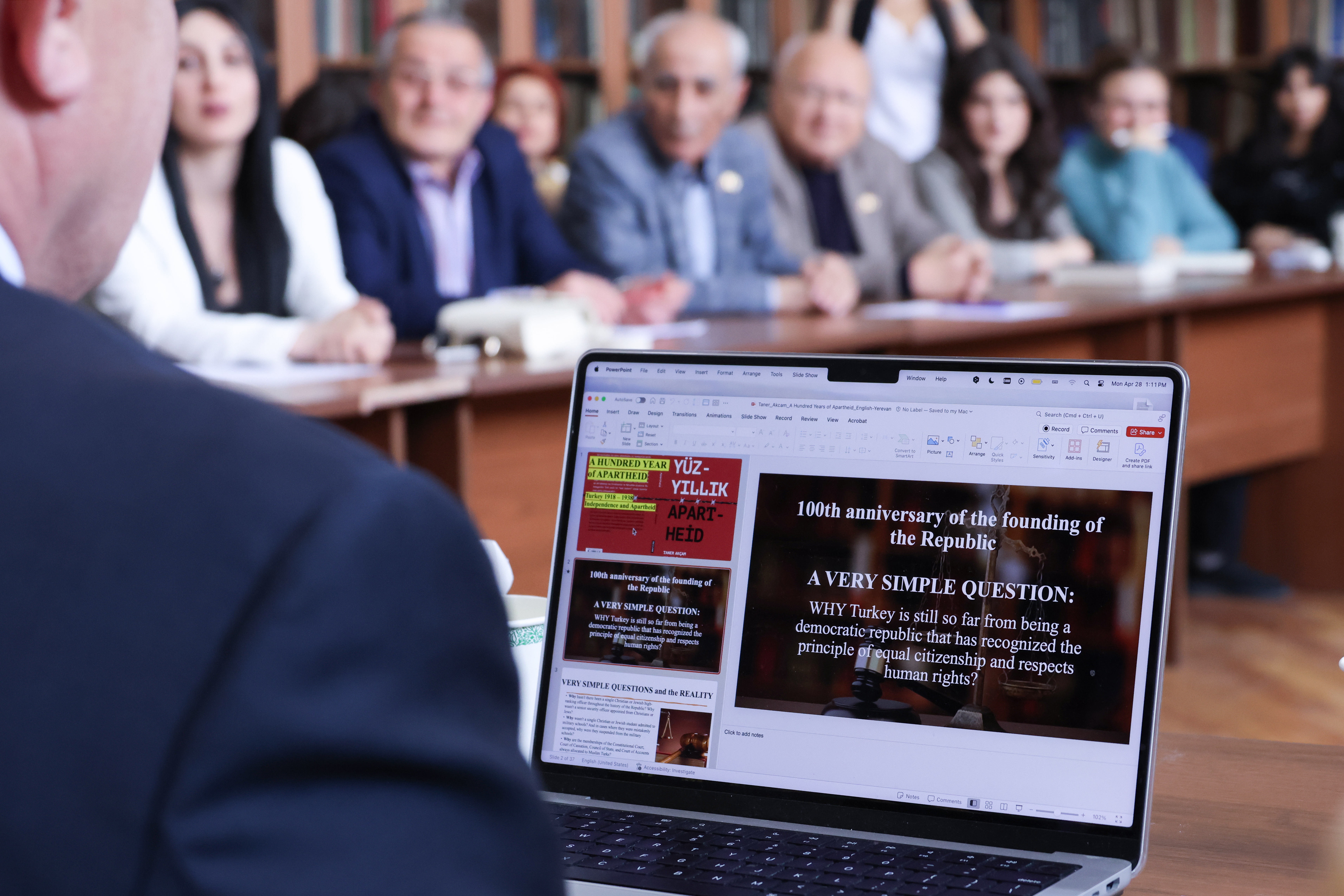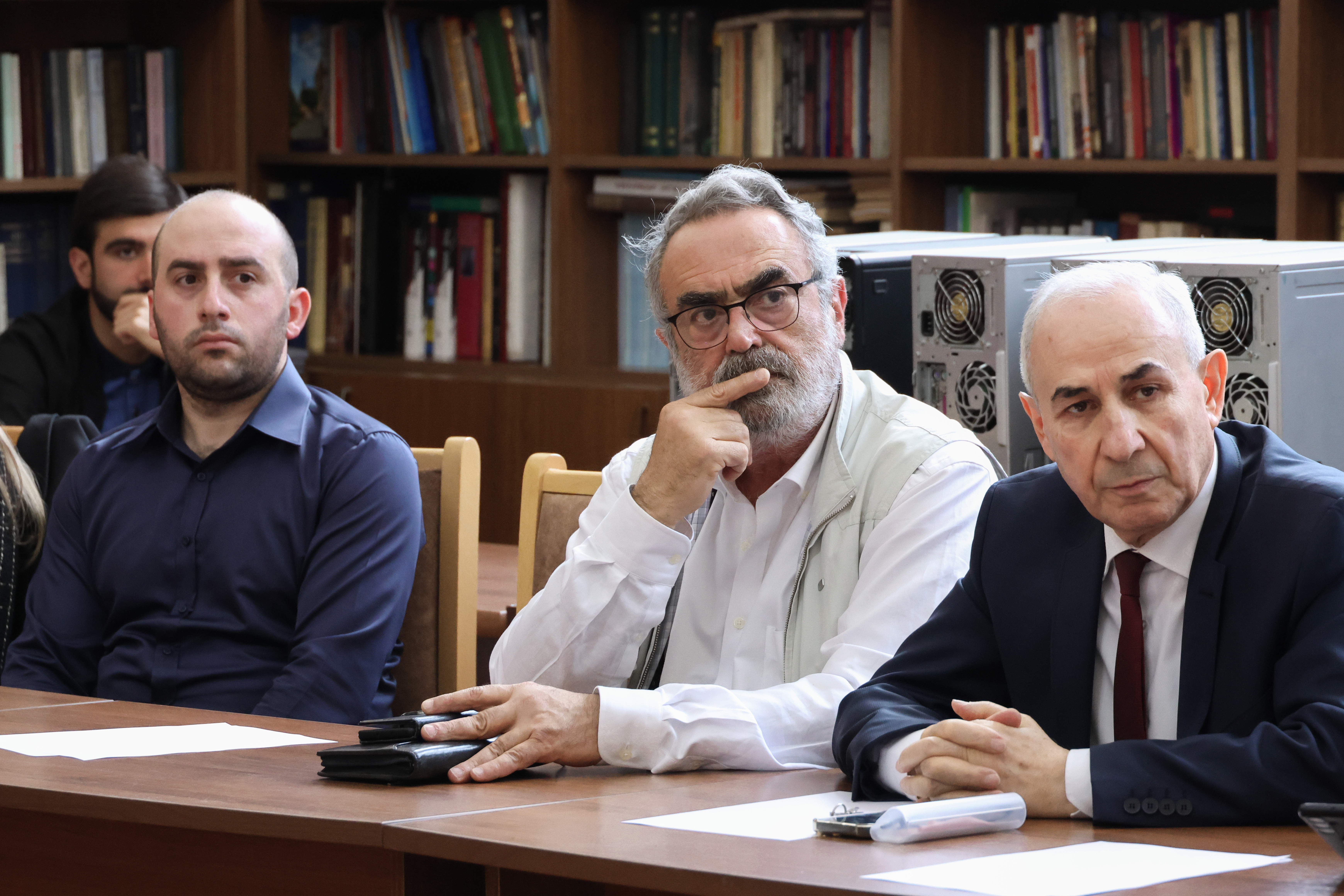April 28, 2025 | 16:21
Society
Events
Policy
Presentation of Turkish historian Taner Akçam's book "One Hundred Years of Apartheid: The History of the Republic of Turkey" held
Yerevan State University hosted the presentation of the book "One Hundred Years of Apartheid: A History of the Republic of Turkey" by Turkish historian and professor Taner Akçam, founder of the "Armenian Genocide" research program of the Promise Armenian Institute at UCLA. In his address, Taner Akçam presented the arguments through which he interprets the actions of the Turkish authorities as manifestations of ethnic discrimination.
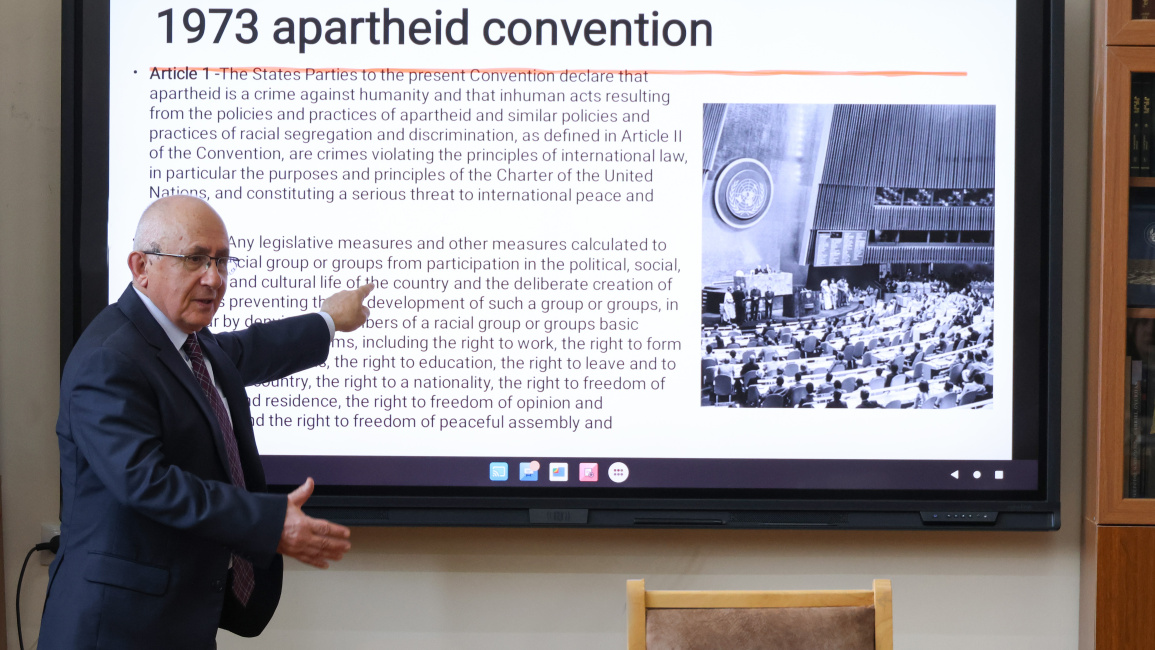
This was Professor Akçam’s first visit to YSU Faculty of History. He is the author of numerous books and articles that explore and analyze various aspects of the Armenian Genocide.
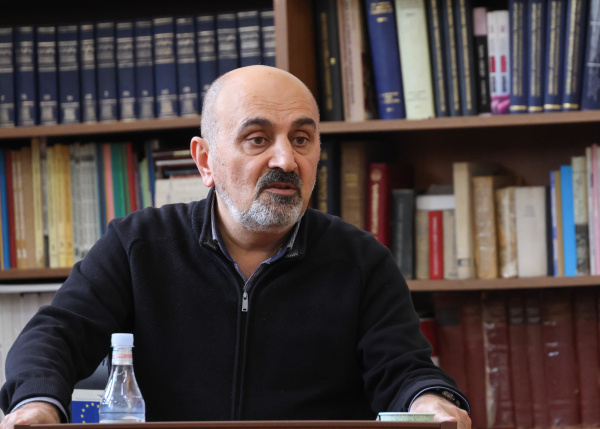
Dean of the Faculty of History at YSU, Mkhitar Gabrielyan, remarked: "Just days ago, we marked the 110th anniversary of the Armenian Genocide, a memory made even heavier by the fact that genocides continue to this day. I believe it is more important than ever to listen, understand, and feel what genocide scholars think—not only about what happened, but also about the responsibilities each of us bears today."
Welcoming Taner Akçam’s professional and moral commitment to the recognition of the Armenian Genocide, Mkhitar Gabrielyan added: "This is one of the rare instances in which an individual’s recognition, and a single book, contribute not only to the process of genocide recognition but also to engaging new voices in genocide studies."
Presenting his book "One Hundred Years of Apartheid: The History of the Republic of Turkey," Taner Akçam highlighted the central arguments he makes throughout the volume.
"In writing this book, I was guided by two principal theoretical frameworks: one is national liberation, the other is the establishment of the nation-state. The book addresses the process of Turkey's formation and the historical narrative that portrays it as a national liberation struggle. My argument is that, on the path to fighting for its independence, Turkey established an apartheid regime in 1918," he stated.
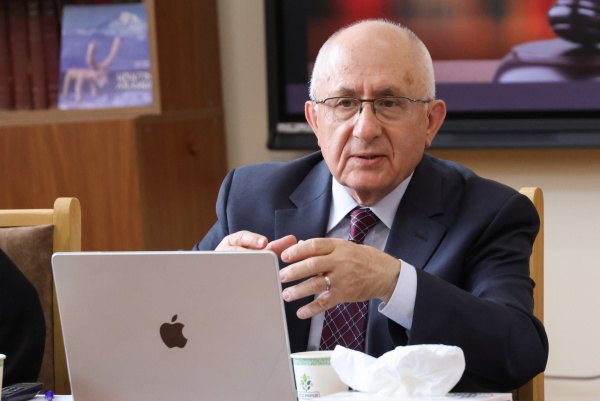
Addressing the question he himself posed—why Turkey, despite its proclaimed commitment to equal citizenship and human rights, remains far from being a democratic republic—Akçam noted: "If we examine the history of Turkey’s founding, which Turkish historiography presents as a liberation struggle, we cannot understand why Turkey has never succeeded in becoming a democratic country. I do not reject the principle that every nation has the right to self-determination. However, if we seek to understand current issues such as racism, democratic deficits, human rights violations, and discrimination against minorities, we cannot do so solely through the lens of national liberation struggle. Turkey should be viewed as a state that was founded through the Armenian Genocide of 1915 and later restructured by the Kemalists after 1918—becoming a state that treats Christians, Kurds, and other nations as second-class citizens."
Akçam’s book includes references to Turkish laws and examples from archival documents. He emphasized that in Turkey, those of Turkish ethnic origin are regarded as first-class citizens, whereas Christians and Kurds are not. According to Akçam, this discriminatory approach is even codified within Turkish legislation and legal frameworks.
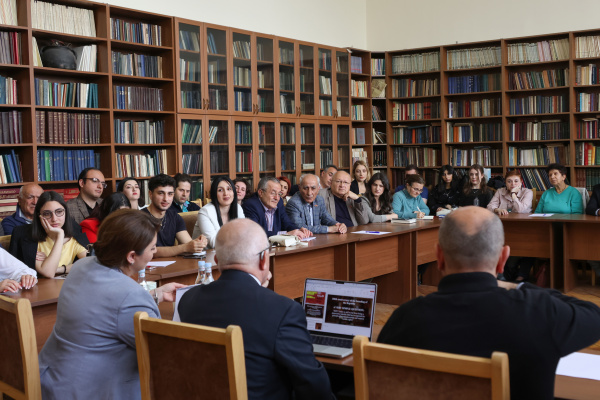
"My argument is that an apartheid regime exists in Turkey, based on international conventions. Christians have been excluded from participation in the political, social, and cultural life of Turkey, as well as from its legal regulations. Turkish citizens are categorized as either of Turkish origin or non-Turkish origin. Many Armenians were forcibly converted to Islam and took on Turkish names. This raises the question of how their descendants are identified—who is of Armenian origin and who is not? In 2013, we discovered by chance that a coding system exists in Turkey’s population registry: the number 1 is assigned to Greeks, 2 to Armenians, and 3 to Jews," he said, stressing that even if an individual forgets their origins, the state never does.




